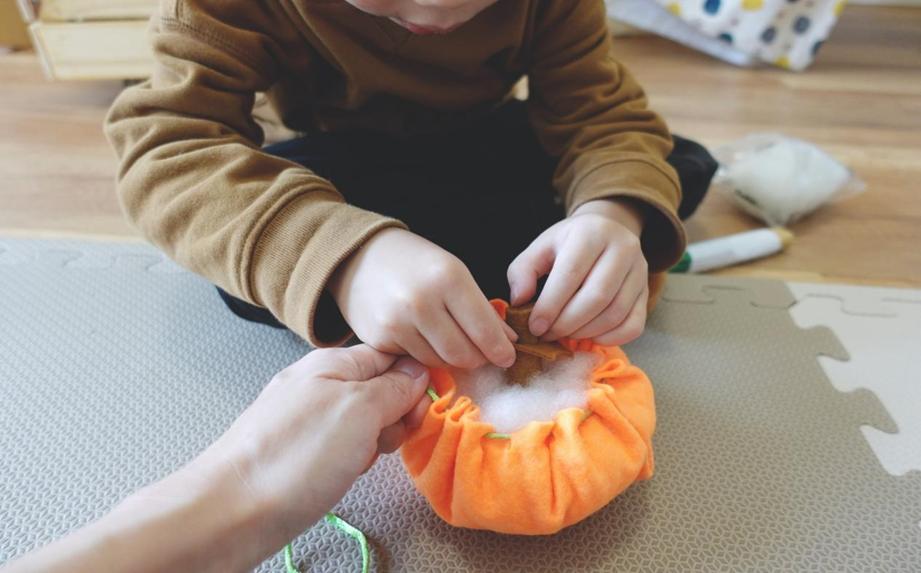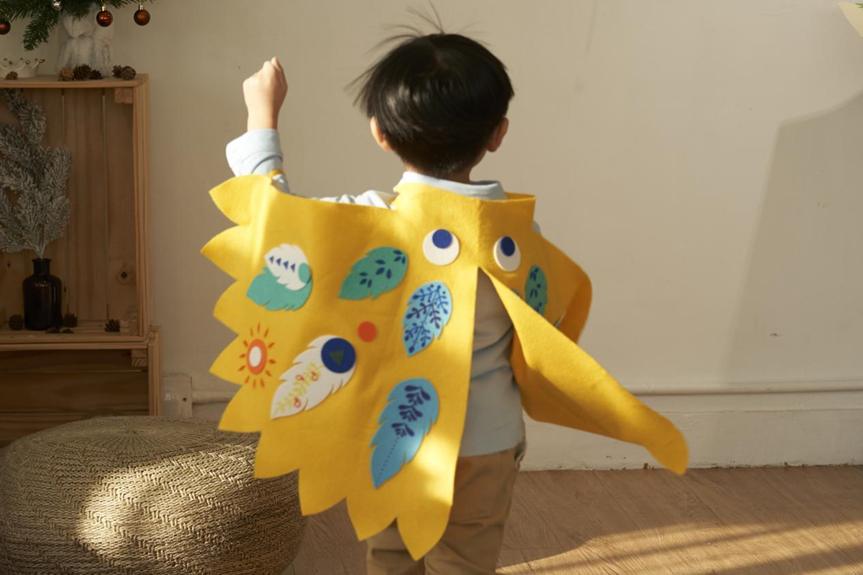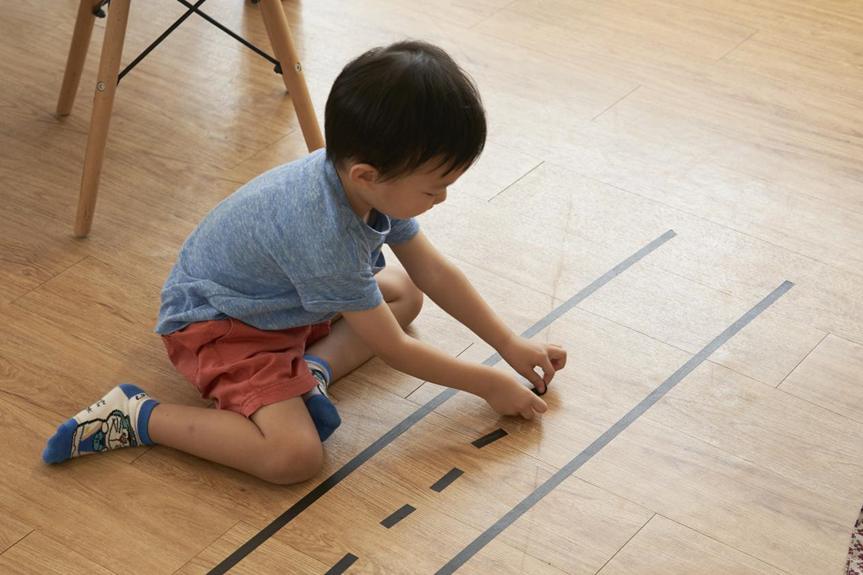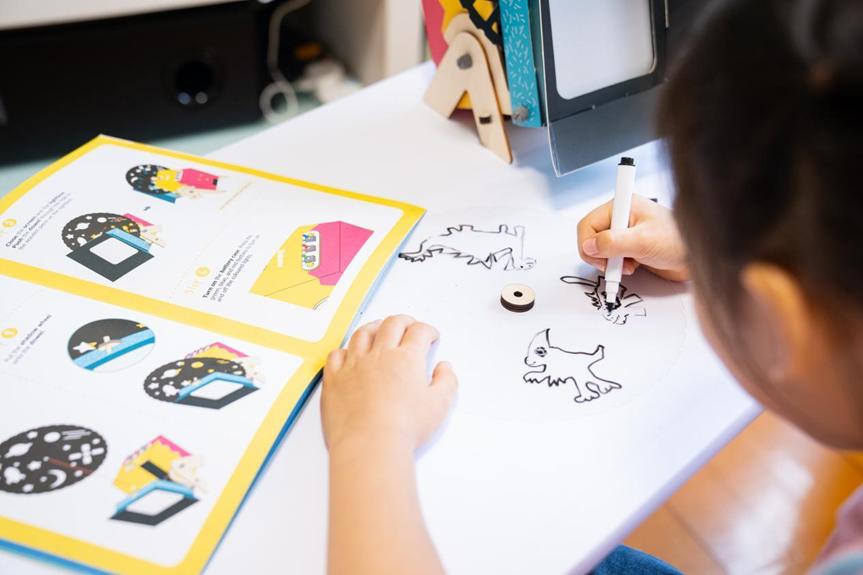Building Strong, Confident Kids: A Parent's Guide
October 23th, 2024 / By Elaine Chan

As an engineer mom, if you ask me what quality I want to cultivate in my children the most, I would unhesitatingly say: "Confidence!" I want my children to be filled with confidence—confident to express themselves, confident to face challenges, and confident to navigate the ups and downs of life.
This is exactly what Tinkerer wants to instill in children as well. Through fun, creative, and inspiring hands-on activities, Tinkerer aims to build children’s creative confidence. Children should not be passive learners; they should be brave explorers. They should be curious about the world and confident in their abilities. No matter what setbacks they encounter, they should maintain a resilient mindset and find unique solutions creatively.
Raising confident kids is a challenging journey because breaking confidence is often easier than building it. Here are eight important principles I have gradually formed during my work and parenting journey, as well as three game recommendations to avoid damaging children’s confidence. I hope you find them helpful.
1. Encourage Independence
Confidence is closely related to independence. I want my child to express their opinions and ideas freely and make their own choices. Whether it’s choosing clothes, deciding what snacks to eat, or selecting extracurricular activities, you can let your child make these decisions. Through making choices, they learn that their opinions matter and gain confidence from it.
Moreover, I often ask my children to help out. For example, throwing trash into the bin, setting the table, or organizing toys. In the early childhood stage, they enjoy feeling needed and gaining a sense of value through these small tasks.

2. Celebrate Effort, Not Just Results
I never shy away from praising my children, but I also want them to know that regardless of the outcome, I am proud of their efforts. Cultivating a new skill requires hard work, and the results are not always immediate.
I always remember psychologist William James’ view—confidence comes from the challenges and difficulties we overcome. What truly brings joy and growth is not avoiding difficulties, but confronting something challenging or fearsome. Just like in The Old Man and the Sea, even though the old man ended up with just fish bones, the battle against the sea was a truly precious experience.
3. Set a Confident Example
Nothing escapes a child’s eyes—they are constantly observing and imitating us! Children learn through role models, so if you want them to be confident, show them how you face difficulties with a positive attitude.
There was a time when my daughter would enthusiastically insist, "Mom, do it!" every time she unlocked a new skill. Some of those moves were a real challenge for me, like balancing on my hands and arching my body backwards. As a mom with very little flexibility, I was hesitant to take that risk. I tried to brush it off with, "Mom can't do that."
But she looked at me with determination, still holding her arched pose, and said, "Mom, try!" It was both amusing and frustrating. I realized I had no choice but to give it a go because I often told her, "You won’t know unless you try." It hit me that I need to set a good example, even if it’s not something that happens overnight.

4. Set Age-Appropriate Challenges
Clear goals and achieving those goals will make children feel strong. But we shouldn’t set a task for a two-year-old that involves using scissors, as this task is beyond their current capability.
In my work, I break down big goals into smaller, more manageable steps, and this method applies to children as well—just like what we do in Tinkerer boxes. We break down a complex scientific theme into multiple fun activities that are age-appropriate yet still challenging. This allows children to celebrate small victories at every stage, boosting their confidence in their own abilities.

5. Promote Creative Problem-Solving
The world is complex, and many things don’t have a single or so-called correct solution. I want my children to understand this from a young age. They don’t have to stick to fixed patterns; they can use their imagination to solve problems creatively.
I often ask, “What else could we do?” or “Do you think there’s another way?” Encouraging them to look for new ways to solve problems will help them build confidence in approaching new things and innovation.
One of our favorite activities is inventing new ways to play Tinkerer games. For example, making a pull-string hedgehog and racing to see who goes the slowest. Or seeing who can design the funniest monster cartoon. This brings us even more laughter.

6. Encourage Curiosity
Sometimes children’s endless questions can be frustrating, but asking questions is essential for their growth. Harvard professor Paul Harris believes that, “Young children are capable of learning as much via dialogue as from hands-on or discovery learning.”
“Why is the sky blue?” “Why does ice cream melt?” “What are stars made of?”... Curiosity means a desire to explore, which will help them actively discover and learn new things. They usually think about what adults tell them and then ask even more questions.
7. Cultivate a Growth Mindset
Success does not mean getting things right the first time. Success is day-by-day efforts and gradually becoming better.
I love doing experiments and DIY projects at home with my kids. As you can imagine, we often encounter failures. “Oh, it seems this method doesn’t work!” Sometimes, I’ll complain a bit, and then seize the opportunity to show them coping strategies: “Let’s see where the problem is, I think we can try again!”
I hope that through these actions, my kids understand that perseverance and effort can overcome current difficulties. As the great inventor Thomas Edison said: “I have not failed. I've just found 1,000 ways that won't work!”

8. Create Time to Play Together
Love and acceptance are key elements of confidence and self-worth. When you genuinely enjoy your time with your child, you are building an ever-growing emotional bond.
As parents, we need to let our children know: they are important and worth our time. I love taking time every day to put aside my phone, work, and other distractions and fully engage in play with my kids. Most of the time, I let my children lead the play, use their imagination, and come up with their own ideas. Sometimes we also find fun activities from the Tinkerer box and enjoy some meaningful family time together.

3 Game Suggestions to Protect a Child’s Confidence
1. Choose Age-Appropriate Toys and Games
We often overlook a child’s actual abilities when choosing toys. Simple actions like twisting a screw
are very challenging for young children. Toys that exceed their capability will greatly damage their
confidence and enthusiasm for exploration.
2. Avoid Providing Too Much Support Too Early
Do you feel compelled to jump in when you see your child struggling with a simple problem? Offering help
too early can make your child think you believe they aren’t strong enough to do it themselves.
Long-term, this will lower their self-rescue ability and confidence. This doesn’t mean we should never
help—just encourage them to try independently first.
3. Respect Their Interests
You may not understand why your child can spend hours reading comics or studying dinosaurs. What may
seem like a waste of time to us can be very important to them. Respecting your child’s interests will
let them know that they are important and that your love is unconditional—not based on performance.
Rome wasn’t built in a day. Raising confident children is a process that requires patience, understanding, and consistent effort. As a busy mom, I also reflect, learn, and grow as my children do. I hope that each of us can not only raise confident children but also become adults who face life’s challenges with more confidence.
Cherish the process and enjoy the small victories along the way!









